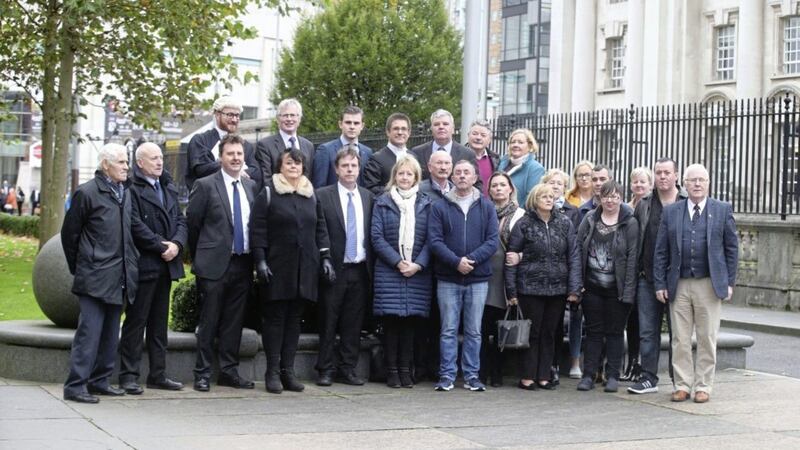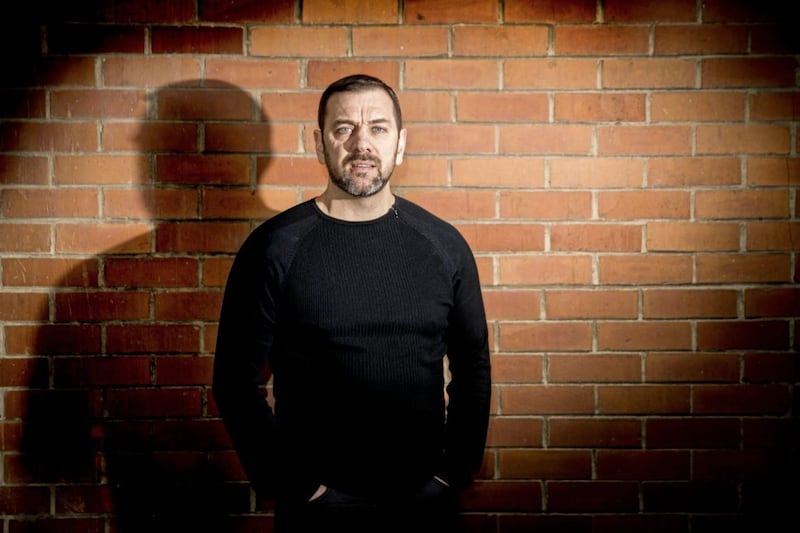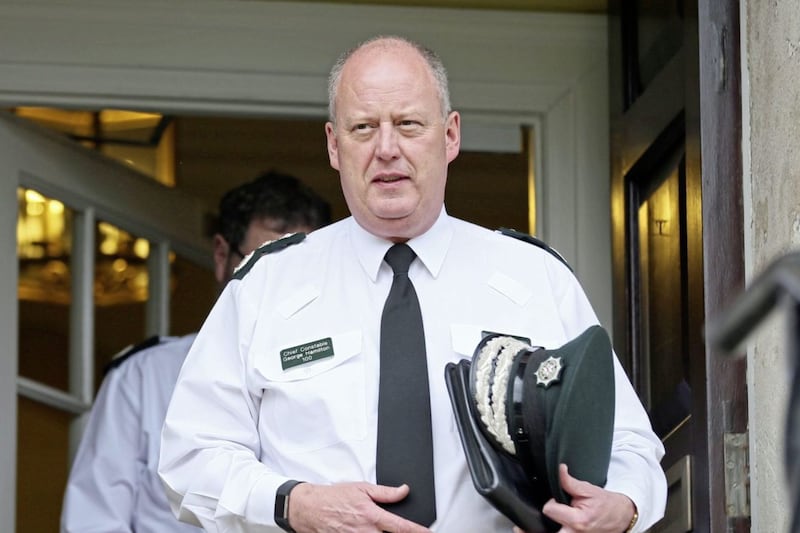THE Chief Constable should be compelled to finalise and publish an all-encompassing report into suspected state collusion with a loyalist unit behind more than 100 murders, the High Court has heard.
A judge, who has already ruled that police unlawfully frustrated any chance of an effective probe, was urged to order completion of an overarching investigation into the so-called Glenanne Gang's killing spree throughout the 1970s.
Lawyers for the families of victims sought the remedy as it emerged that Mr Justice Treacy's verdict is set to be appealed.
Earlier this year he held that bereaved relatives were denied in their legitimate expectation that the now-defunct Historical Enquiries Team would publish a thematic report.
Judicial review proceedings were brought in the name of Edward Barnard.
Mr Barnard's 13-year-old brother Patrick was among four people killed in a St Patrick's Day bomb attack on the Hillcrest Bar in Dungannon in March, 1976.
Five years later Dungannon UVF member Garnet James Busby was convicted after admitting his role in the attack.
The murder gang based at a farm in Glenanne, Co Armagh allegedly contained members of the RUC and the UDR.
Up to 120 murders in nearly 90 incidents in Mid Ulster and border areas are under scrutiny.
They include outrages such as the 1975 Miami Showband Massacre, where three members of the popular group were taken from their tour bus and shot dead on a country road in Banbridge, Co Down, and the Step Inn pub bombing in Keady a year later, which claimed the lives of two Catholics.
A draft HET report into alleged security force collaboration with the killers was said to have been 80 per cent finalised before being shelved.
Mr Barnard and other relatives want to have police compelled to complete the full investigation and publish the findings.
During the original hearing his barrister said documents in the case revealed Busby named two other suspects who allegedly took the bomb to the bar.
He argued that the development represented fresh evidence in the case.
Counsel for the Chief Constable had insisted it would be an unnecessary step to force police to finalise an overarching report he claimed had yielded no new investigative opportunities.
In July Mr Justice Treacy held that a package of measures for ensuring the independence of the HET, agreed by a Committee of Ministers in 2009, began to be "dismantled" a year later.
Operation of the HET - which had its own £34 million budget - and all cases with potential evidential opportunities was then transferred to the PSNI.
By 2014 the PSNI had established its Legacy Investigations Branch (LIB) to take over from the HET amid severe budgetary pressures.
The LIB's ability to continue its predecessor's work has been undermined by reduced resources, according to the judge.
He pointed out how the HET had repeatedly pledged to analyse the Glenanne series of atrocities separately and complete a report.
Mr Justice Treacy described the unfairness to Mr Barnard - who believed the murder of his brother would be examined for any evidence of collusion - as "extreme".
The situation has completely undermined the confidence of the families whose concerns remain unresolved, according to the judge.
Returning to the case today counsel for Mr Barnard argued that the proper relief would be an order compelling the Chief Constable to complete the report into the Glenanne group of cases.
A mechanism should be set up to ensure similar "institutional independence from the PSNI" as previously established for the HET team, the court heard.
Following submissions Mr Justice Treacy reserved judgment on the issue of relief.








